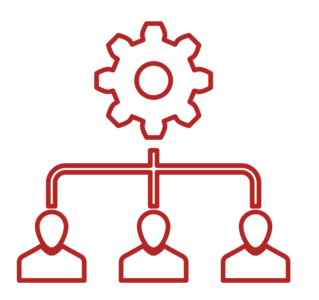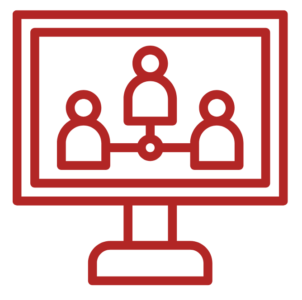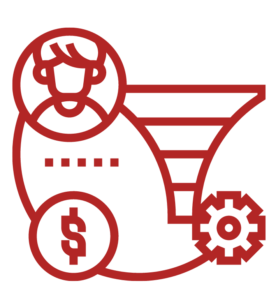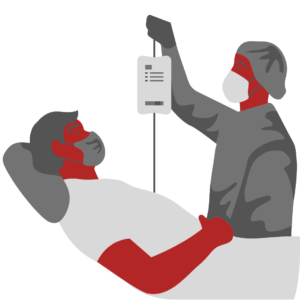Why CRM is Important for Medical Device Manufacturers
Many medical device manufacturing companies begin as small start-ups and grow exponentially. During that rapid growth period, the focus is on their manufacturing process – improvements for more consistency, higher quality, and meeting ever-changing regulations. Often for start-ups, a full-blown CRM solution just isn’t practical given priorities and funding challenges. The recommended rule is before you think you need a CRM solution, you should begin planning for one.
Here’s why you need to start planning for a CRM solution and how it will help your Medical Device Manufacturing business grow:
Lead Management

Your website may already gather lead information, but where does it go from there? A CRM system can capture leads from multiple sources, validate and score them, categorize and route them, and provide tracking and reporting to help you understand your best lead sources.
Once the leads have been qualified, you can track all the interactions they have as they progress through your process, and report on them every step of the way. The information you gain here will help refine your lead scoring so your Sales reps can focus their energy on the leads most likely to convert in the future.
Lead Generation & Campaign Management

When leads are captured by your website, they’re from potential customers who have sought you out. Why not increase the odds that you’ll be seen by the businesses most likely to be looking for you by seeking them out and directing them to your website? Lead generation ensures a steady stream of visitors to your website, which leads to a steady stream of new customer acquisitions and increased profitability.
Set up targeted campaigns to meet specific goals based on who you want to target and how you want to reach them and what message you want to promote to that particular audience. Tracking the results of each campaign to understand the most successful will help you improve future campaign outcomes. An integrated CRM can track leads generated from individual campaigns through associated closed deals so you can really understand the benefits of your individual campaigns on your business bottom line.
Improve Sales

Higher quality leads help your Sales reps increase conversion rates and shorten the sales cycle. A good CRM solution can also automate manual tasks, keeping administrative activities to a minimum so Sales reps can spend more time selling and less time making updates. A CRM system can also set reminders to follow-up, configure quotes and send them for approval, route documents for signature, and allow Sales reps to perform all their daily functions from their phones when they’re on the go.
You may have different product lines that follow different sales processes and/or require different information to be gathered. In the fast-paced sales world, it’s easy for reps to forget a step or miss collecting a piece of information along the way. Your CRM will allow you to configure different sales processes for different products and validate that critical information is entered before progressing to the next phase. This will also ensure that all the information is entered in the CRM – not on a post-it note, spreadsheet, or discussed but not documented at all.
Once you have all the information in your integrated CRM, you can get rid of your spreadsheets and manually created reports. Your CRM can produce the metrics you need to determine how your business is doing and highlight where you need to focus attention.
Customer/Patient Self Service

Customers want information when they want it. Providing an integrated customer portal provides the capability to access product information, participate in discussions with other customers, provide product suggestions and feedback, and submit customer service requests online.
A customer portal can also reduce calls to customer service by referring customers to self-help resources before routing their request to a support agent queue. It can also keep track of what the customer needed assistance with that wasn’t accessible from self-service so you can look for ways to enhance self service information in the future.
Physician Support

If your business works directly with physicians, having a separate portal specifically for them allows you to share the appropriate level of product information with the appropriate audience and encourage physician feedback and collaboration through forums and discussions. You can also use this venue to announce product launches, events, trials, and training.
Customer Support

Customers want to be communicated with on their terms – web, chat, email, voice – and a CRM solution allows you to route and manage support cases from all these sources. Provide agents with articles to resolve cases quickly and efficiently. Track metrics on open cases to make sure they don’t fall through the cracks and send surveys to customers after resolution to monitor service levels.
With an integrated CRM system, your Sales team has access to their customers’ support cases so they’re up to date on what’s going on when they talk to them. This complete view of the customer is where the integrated CRM benefits really wow your customers. They see your company as a team supporting them.
Salesforce integrated CRM solutions can provide all these capabilities and more, allowing you to manage your sales and customer service processes just as effectively and efficiently as you manage your manufacturing processes.
Thinking about a CRM solution but unsure about what you need or if you’re ready for it? Redpath can help!
With the rapid evolution of technology, Salesforce solutions are ever-changing and improving features. Contact our team for up-to-date information.

